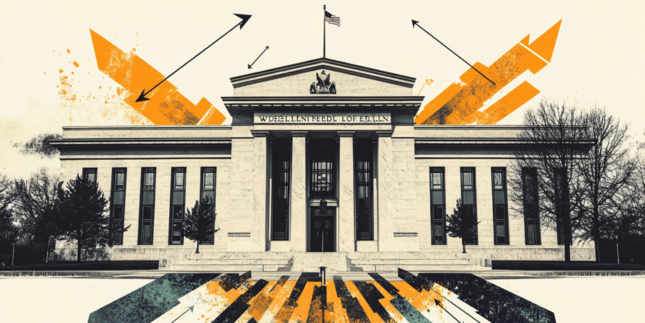We had to choose a new health insurance plan recently which reminded me just what a scam the health insurance business is.
There really is no business in America quite like it. It can charge you up to $25,000 per year for family coverage and literally provide you nothing in return except an annual check-up and a blood test. Truly, it is the perfect business model. It collects money every month. You can never cancel it. It tries everything in its power not to pay out claims while making carry on the money it collects. It’s the easiest 40 billion dollars of profit in American commerce.
I am exaggerating but just barely. The basic health plan in America has a $10,000 deductible before it pays out a dime for health expenses. So unless you get run over by a car every year, or catch cancer or have a heart attack your health insurance pays for NOTHING. Food poisoned? Flu? Cut finger? Even Covid. Suck it up, big boy. It comes out of your pocket first despite paying more money in premiums than you do for a mortgage.
The health care insurance companies may be the scummiest businesses on earth but they are also brilliant at what they do and we as traders can learn a lot from their tactics.
The first thing insurance companies always do is capitate. This is a fancy word for placing risk limits. Basically no single individual is an uncapped risk. Every policy comes with a hard money stop so that no one chronically ill person can’t bleed them of their capital. Usually, most health insurance policies stop payouts after $1 million dollars. Most of us, of course, have no idea that this exists because fortunately most of us will never accrue such large medical costs. But you can be sure that the guys on the other side of that trade know this cold and we should all keep that lesson in mind next time we are mindlessly plowing money into a losing position hoping that it will resuscitate.
But if stop losses are the foundation of the insurance business, the most important business practice in the industry is discrimination. No one discriminates quite like the insurance companies. If they had their druthers they would offer policies just for guys like me - a 50-something who rarely gets anything more than a cold, has no history of surgery or illness and takes zero prescriptions while happily paying them $20,000 a year for “peace of mind”.
The famous line from the Wire is that nothing in life is more expensive than “free”, “peace of mind” comes a close second.
In any case, until they were forced by Obamacare to stop it, insurance companies were the greatest discriminators in the world, using reams of data analysis to approve only those customers who were never likely to get sick. In short, insurance companies always look to make as many “winning trades” as possible. They do this by walking away from even the slightest threat of risk.
Imagine two customers John and Jack - both 40-year-old males. John is as trim as he was in high school, runs three miles every other day, and eats organic food only. Jack smokes two packs a day, is 100 pounds overweight and often wakes up in his rumpled clothes after consuming a bottle of Jack Daniels the night before. John’s premium may be just $2,000/year and Jack’s may be $8,000 for the exact same policy, but most insurance companies would find a reason to reject Jack even if he was willing to pay them $16,000.
Because they are not stupid. They know that with John they are likely to have 20 years of carefree money collection whereas Jack is a heart attack waiting to happen and no amount of premium upfront would offset their losses if Jack ended up face down on some the bar floor with an EMT straining to shove his blubbery body into an ambulance. It doesn’t matter how much Jack is willing to pay for his coverage, the risk is never worth it.
Scummy or not, health insurance companies are masters of controlling their environment by relentlessly discriminating against risk. We can certainly question the morality of their tactics, but we can’t ignore the effectiveness of their approach and since the only thing we traders ever kill is money, adopting their methods won’t compromise our values but almost certainly could improve our results.
Past performance is not indicative of future results. Trading forex carries a high level of risk, and may not be suitable for all investors. The high degree of leverage can work against you as well as for you. Before deciding to trade any such leveraged products, you should carefully consider your investment objectives, level of experience, and risk appetite. The possibility exists that you could sustain a loss of some or all of your initial investment and therefore you should not invest money that you cannot afford to lose. You should be aware of all the risks associated with trading on margin, and seek advice from an independent financial advisor if you have any doubts.
Editors’ Picks

EUR/USD clings to small gains near 1.1750
Following a short-lasting correction in the early European session, EUR/USD regains its traction and clings to moderate gains at around 1.1750 on Monday. Nevertheless, the pair's volatility remains low, with investors awaiting this weeks key data releases from the US and the ECB policy announcements.

GBP/USD edges higher toward 1.3400 ahead of US data and BoE
GBP/USD reverses its direction and advances toward 1.3400 following a drop to the 1.3350 area earlier in the day. The US Dollar struggles to gather recovery momentum as markets await Tuesday's Nonfarm Payrolls data, while the Pound Sterling holds steady ahead of the BoE policy announcements later in the week.

Gold stuck around $4,300 as markets turn cautious
Gold loses its bullish momentum and retreats below $4,350 after testing this level earlier on Monday. XAU/USD, however, stays in positive territory as the US Dollar remains on the back foot on growing expectations for a dovish Fed policy outlook next year.

Solana consolidates as spot ETF inflows near $1 billion signal institutional dip-buying
Solana price hovers above $131 at the time of writing on Monday, nearing the upper boundary of a falling wedge pattern, awaiting a decisive breakout. On the institutional side, demand for spot Solana Exchange-Traded Funds remained firm, pushing total assets under management to nearly $1 billion since launch.

Big week ends with big doubts
The S&P 500 continued to push higher yesterday as the US 2-year yield wavered around the 3.50% mark following a Federal Reserve (Fed) rate cut earlier this week that was ultimately perceived as not that hawkish after all. The cut is especially boosting the non-tech pockets of the market.
RECOMMENDED LESSONS
Making money in forex is easy if you know how the bankers trade!
I’m often mystified in my educational forex articles why so many traders struggle to make consistent money out of forex trading. The answer has more to do with what they don’t know than what they do know. After working in investment banks for 20 years many of which were as a Chief trader its second knowledge how to extract cash out of the market.
5 Forex News Events You Need To Know
In the fast moving world of currency markets where huge moves can seemingly come from nowhere, it is extremely important for new traders to learn about the various economic indicators and forex news events and releases that shape the markets. Indeed, quickly getting a handle on which data to look out for, what it means, and how to trade it can see new traders quickly become far more profitable and sets up the road to long term success.
Top 10 Chart Patterns Every Trader Should Know
Chart patterns are one of the most effective trading tools for a trader. They are pure price-action, and form on the basis of underlying buying and selling pressure. Chart patterns have a proven track-record, and traders use them to identify continuation or reversal signals, to open positions and identify price targets.
7 Ways to Avoid Forex Scams
The forex industry is recently seeing more and more scams. Here are 7 ways to avoid losing your money in such scams: Forex scams are becoming frequent. Michael Greenberg reports on luxurious expenses, including a submarine bought from the money taken from forex traders. Here’s another report of a forex fraud. So, how can we avoid falling in such forex scams?
What Are the 10 Fatal Mistakes Traders Make
Trading is exciting. Trading is hard. Trading is extremely hard. Some say that it takes more than 10,000 hours to master. Others believe that trading is the way to quick riches. They might be both wrong. What is important to know that no matter how experienced you are, mistakes will be part of the trading process.
The challenge: Timing the market and trader psychology
Successful trading often comes down to timing – entering and exiting trades at the right moments. Yet timing the market is notoriously difficult, largely because human psychology can derail even the best plans. Two powerful emotions in particular – fear and greed – tend to drive trading decisions off course.
